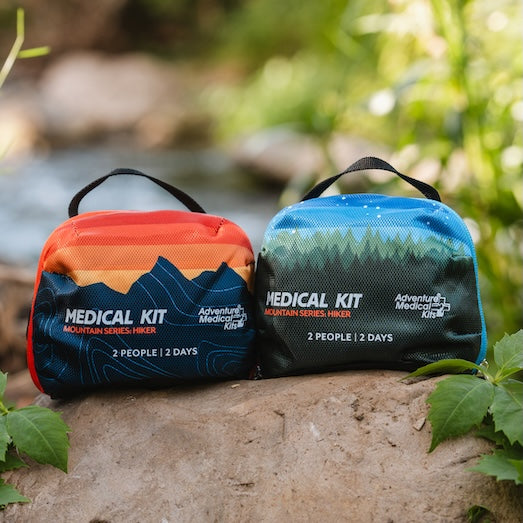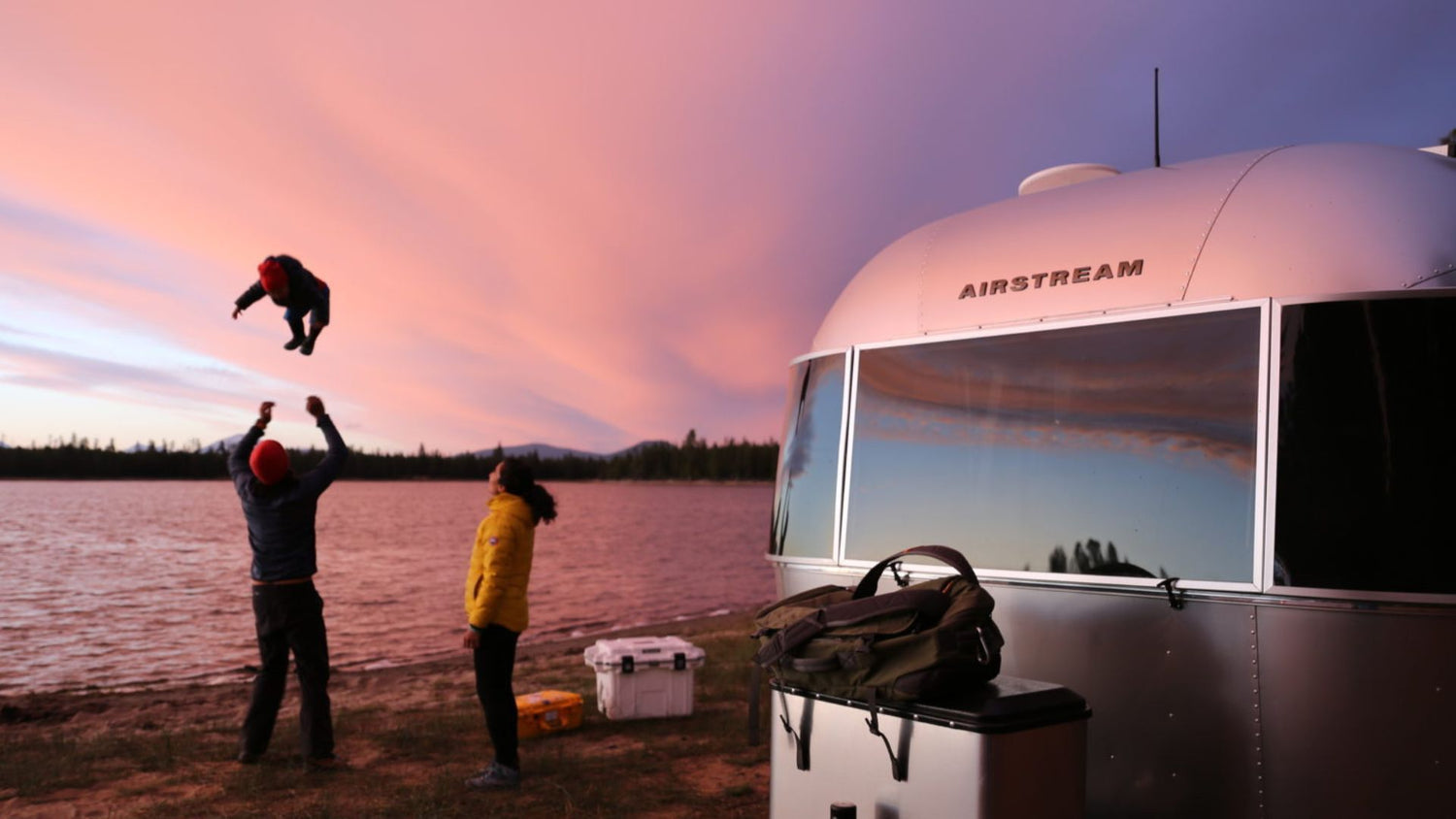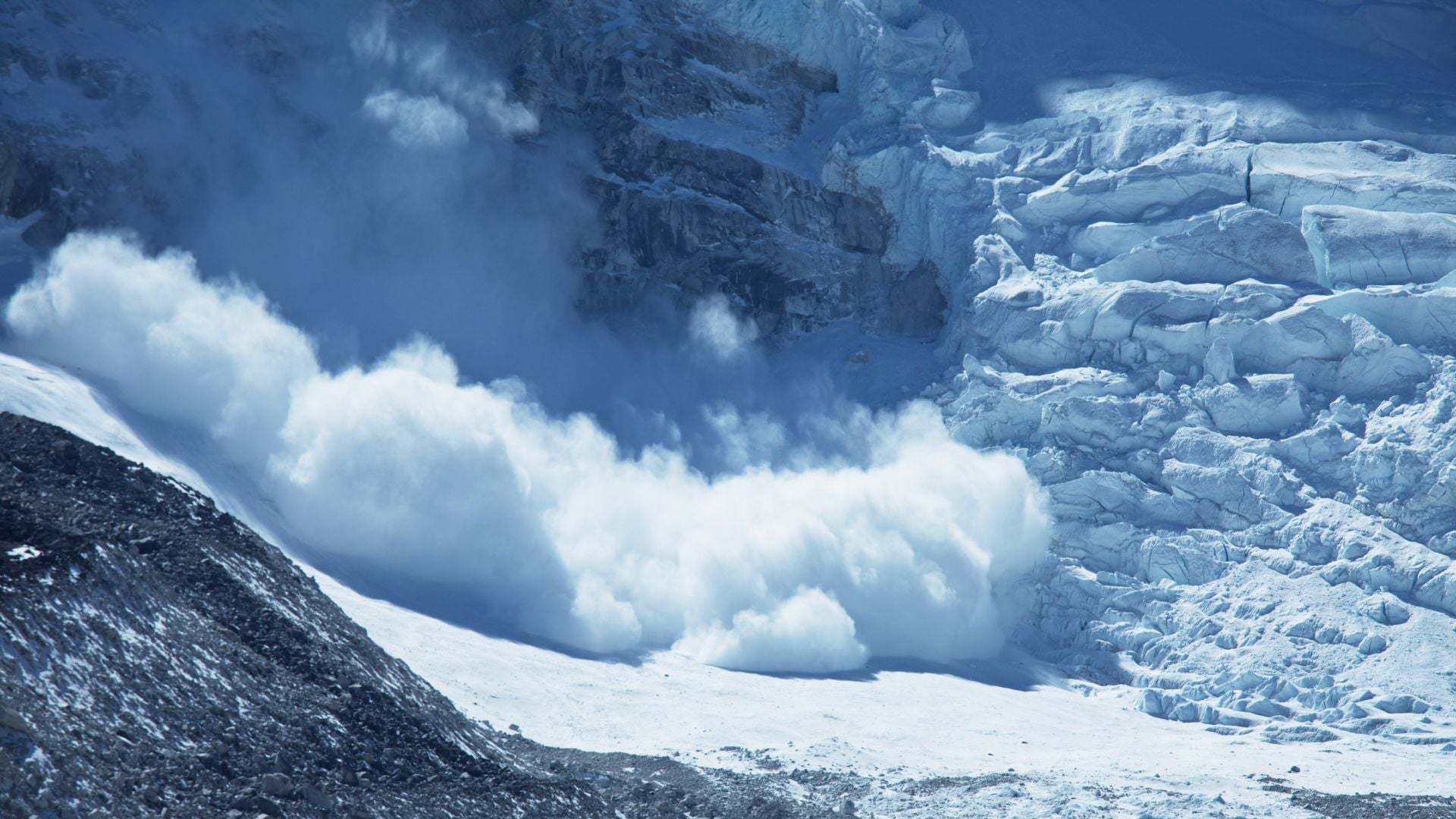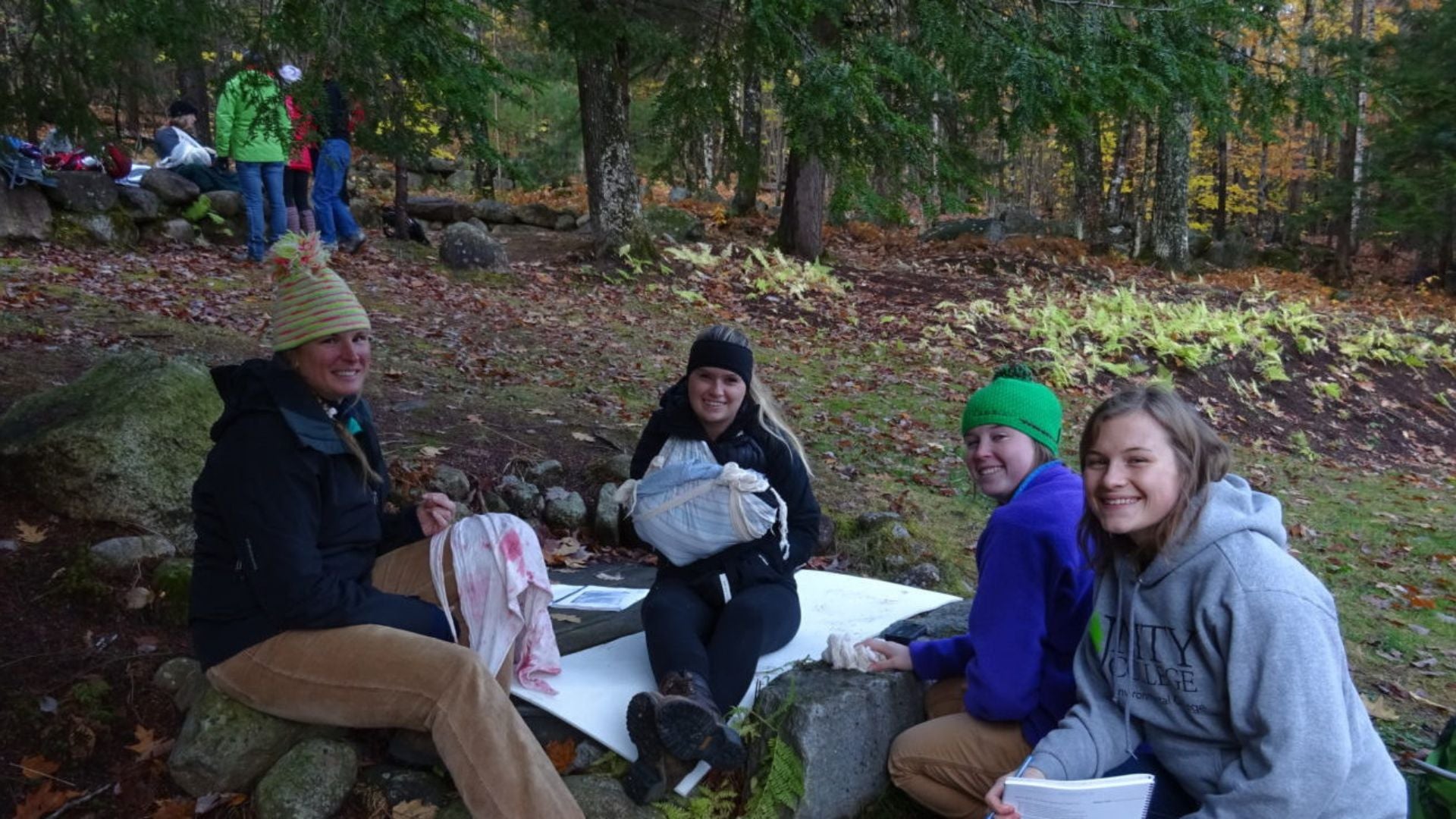It’s summertime! That means it is time to get outside and explore your state and national parks, recreation areas, and favorite campgrounds. Before you pack up the kids into the SUV, be sure to review this list of family camping first aid tips from wilderness safety expert Buck Tilton.
Pack a First Aid Kit
When you pack for a family camping trip, a first-aid kit is a mandatory item. Heck, it has been on the list of Ten Essentials ever since the invention of lists. If your gear includes the Adventure Medical Kits Backpacker medical kit with the Easy Care First Aid System, you can handle the most common problems—even without advanced first aid training.
A first-aid kit is a mandatory item.

Cuts and scrapes will send you looking for the kit most often. Three goals worthy of consideration include:
#1 Stop Serious Bleeding
Almost all bleeding can be stopped with direct pressure: pressure from your hand directly on the wound (preferably with gloves on). Adding a product such as QuikClot to your medical kit will put you in control of more nasty bleeds. You can allow small wounds to bleed to a stop, a process that may help clean them a bit.

#2 Prevent Infection
Proper wound cleaning and dressing will prevent infection in most wounds garnered on a family camping trip. Cleaning also speeds healing and reduces scarring. The best method for cleaning is mechanical irrigation delivered from a high-pressure, irrigation syringe with 18 gauge plastic tip. The best cleaning solution is disinfected water—water that’s safe to drink.
Draw the solution into the syringe, hold it about two inches above the wound and perpendicular to the wound, and push down forcefully on the plunger. Use at least half a liter, more if the wound still looks unclean.
Without an irrigation syringe, you can improvise by using a biking water bottle, forcing water from a hydration bladder, or punching a pinhole in a clean plastic bag full of water. Embedded pieces of gravel and dirt will need to be scrubbed clean from the skin to further reduce the chance of infection.
#3 Promote Healing
Wounds heal faster with less scarring if they are kept slightly moist with an antibiotic ointment. Then use a dressing to completely cover the wound and ideally extend a half-inch or so beyond the wound’s edge. The bandage will fix, protect, and further assist the dressing. It can be conforming gauze, tape, elastic wraps, clean cotton strips, or improvised out of anything available. For very small wounds, the dressing and the bandage are available as a unit, aka an adhesive bandage like Easy Access Bandages, found in all first-aid kits.
Treating Other Family Camping Injuries
Sprains
First aid for a sprain, another common injury, is RICE: Rest, Ice, Compression, and Elevation.
Do not use the injury (Rest) for about 30 minutes while you reduce its temperature (Ice) as much as possible without freezing. If you don’t have ice, soak the joint in cold water, carry chemical cold packs, or wrap the joint in wet cotton and let evaporation cool the damaged area.
Compression requires an elastic wrap. Wrap it toward the heart and snug but not tight enough to cut off healthy circulation. Elevation refers to keeping the injury a few inches higher than the heart of the injured person. Taking an anti-inflammatory medication such as ibuprofen (200mg – follow directions on package) will help to reduce both pain and inflammation.
After 20 to 30 minutes of RICE, remove the treatment and let the joint warm naturally for 10 to 15 minutes before use. If it hurts a lot, don’t use it—and find a doctor.
Stomach Ailments
Diarrhea is the most common illness disturbing a family camping trip. You can greatly reduce your chances of contracting diarrhea, if you always wash your hands before eating and make sure the cook crew prepares food with freshly cleaned hands. If soap and water aren’t available, keep alcohol-free HandClens hand sanitizer nearby; it kills 99.9% of bacteria, but won’t dry out the skin like alcohol-based sanitizers do.
There are many causes of diarrhea, but with all causes, dehydration is the immediate problem. Mild diarrhea can be treated with water or diluted fruit juices or sports drinks. Persistent diarrhea requires more aggressive replacement of electrolytes lost in the stool, and Oral Rehydration Salts provide the best treatment. Rice, grains, bananas, potatoes are okay to eat. Fats, dairy products, caffeine, and alcohol should be avoided. Anti-diarrheal drugs should be considered. If the diarrhea is not under control in about 24 hours, head for your physician.
Insect Bites & Stings

The little biters–mosquitoes, black flies, gnats, even ticks—tend to be the most annoying family camping problem. Pack to prevent the bites with a DEET-based product such as Ben’s Tick & Insect Repellent, an alternative repellent like Natrapel Picaridin (containing a 20% Picaridin formula), or Natrapel Lemon Eucalyptus, which uses a plant-based active ingredient. After a bite, there’s, well, After Bite, America’s favorite.
